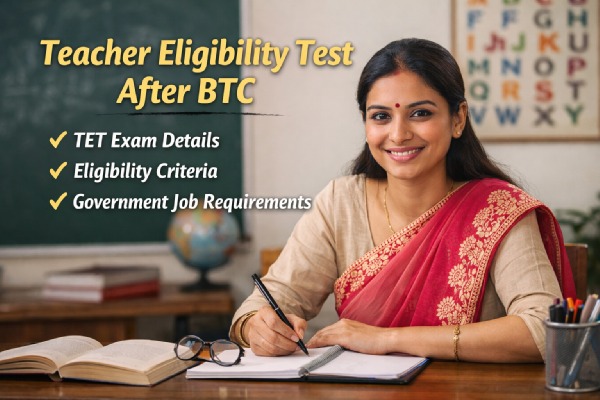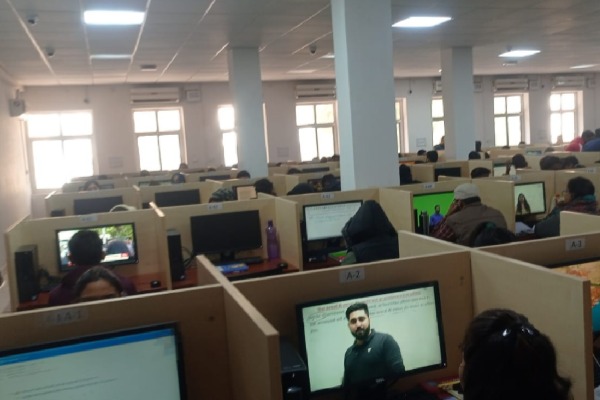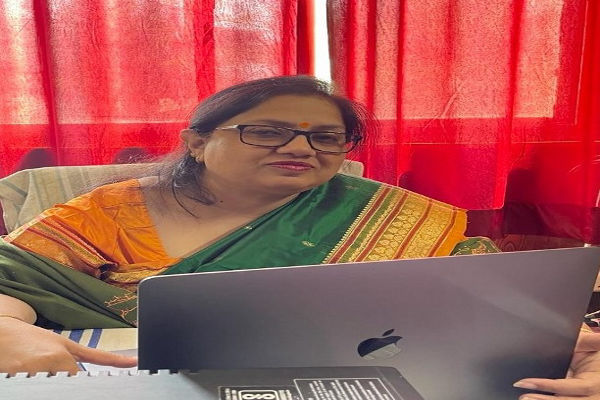
B.Ed vs D.El.Ed: Which Course is Best for a Teaching Career?
Teaching is one of the most respected professions in India. If you want to shape young minds, choosing the right teaching course is important. Two popular courses are B.Ed and D.El.Ed, but many students remain confused about which one to pick. The answer lies in understanding the course structure, eligibility, and job outcomes. Both courses are designed for aspiring teachers but target different educational levels and career goals.
In this blog, we will compare B.Ed vs D.El.Ed to help you make an informed decision. We will look at duration, eligibility, career scope, government job opportunities, and which course suits your goals better.
Thinking about a teaching career? Start your journey with Dr. M.C. Saxena Group of Colleges – a trusted name in professional and technical education since 2004.
Table of Contents
- What is B.Ed?
- What is D.El.Ed?
- Difference between B.Ed and D.El.Ed
- Eligibility and Duration
- Career Opportunities and Scope
- Government Jobs after D.El.Ed
- B.Ed or D.El.Ed: Which is Better?
- Frequently Asked Questions
What is B.Ed?
B.Ed or Bachelor of Education is a professional degree for those who want to teach at secondary or senior secondary levels. This course focuses on teaching methodologies, classroom management, and subject-specific pedagogy.
You must complete a B.Ed to become a teacher in high schools, intermediate schools, or apply for exams like CTET, TGT, or PGT.
- Duration: 2 years
- Level: Undergraduate (for graduates)
- Focus: Teaching students from class 6 to 12
What is D.El.Ed?
D.El.Ed or Diploma in Elementary Education is a diploma course designed for teaching at the primary and upper-primary school levels. The course focuses on child development, classroom activities, and foundational learning techniques.
After D.El.Ed, candidates can teach classes 1 to 8 and are eligible for entrance exams such as CTET (Primary) and state-level TETs.
- Duration: 2 years
- Level: Diploma (after 12th)
- Focus: Teaching students from class 1 to 8
Difference between B.Ed and D.El.Ed
Here’s a quick comparison of both courses for better clarity:
|
Criteria |
B.Ed |
D.El.Ed |
|
Full Form |
Bachelor of Education |
Diploma in Elementary Education |
|
Eligibility |
Graduation in any stream |
Passed 10+2 with 50% marks |
|
Duration |
2 years |
2 years |
|
Teaching Level |
Class 6 to 12 |
Class 1 to 8 |
|
Career Start Point |
Senior school teacher |
Primary school teacher |
|
Certification Required |
CTET/TET (Upper Level) |
CTET/TET (Primary Level) |
This table clearly shows the Difference between B.Ed and D.El.Ed in terms of level, scope, and career eligibility.
Eligibility and Duration
For B.Ed
- You must be a graduate from a recognised university.
- Minimum 50 percent marks are generally required, depending on the college or university.
- The course lasts 2 years and includes both theory and teaching practice.
For D.El.Ed
- You should have completed 12th standard with at least 50 percent marks.
- The 2-year course includes practical classroom exposure and child psychology.
- It prepares you to handle young children and their early-stage learning needs.
Career Opportunities and Scope
After B.Ed
- You become eligible to teach in government and private high schools.
- You can appear for CTET, STET, KVS, and other teaching recruitment exams.
- You can work as a subject teacher, head of department, or pursue an M.Ed for further growth.
After D.El.Ed
- You can apply for teaching positions in government primary schools.
- You are eligible for CTET Paper I and other state-level TET exams.
- The course gives you entry into public and private schools as a primary or upper primary teacher.
According to NCTE, India will require over one million trained primary teachers in the next few years, making D.El.Ed a strong option for early teaching careers.
Government Jobs after D.El.Ed
Many students aim for a stable job in government schools, and D.El.Ed opens that door earlier than most other courses.
Here are the major government job options:
- Primary School Teacher (Class 1 to 5)
- Upper Primary School Teacher (Class 6 to 8)
- Eligibility to write CTET and state-level Teacher Eligibility Tests
- Opportunity to work with central schools, state schools, and local education bodies
- Once selected, these jobs offer regular pay, allowances, and long-term security.
B.Ed or D.El.Ed: Which is Better?
Choosing between B.Ed and D.El.Ed depends on your career goals, qualifications, and the level of teaching you aspire to pursue. Both are recognised teaching programmes but serve different purposes.
- B.Ed is the right choice if you want to teach in secondary or senior secondary schools. It is a professional degree and is often a mandatory qualification for teaching classes 6 to 12 in government and private schools.
- D.El.Ed prepares you to teach at the elementary level, usually from class 1 to 5. It focuses more on foundational education, child psychology, and basic teaching techniques.
If you have completed graduation, B.Ed opens up wider teaching opportunities and is often considered more career-defining in the long term. It also aligns with most recruitment criteria for teaching positions in higher classes.
That said, for those who wish to start teaching early or focus on primary education, D.El.Ed is a solid option that can lead to fulfilling roles, especially with government jobs after D.El.Ed.
B.Ed or D.El.Ed, which is better? The answer lies in your academic background and the age group you want to teach. Evaluate your interests, job preferences, and eligibility before deciding.
Want to Build a Teaching Career That Lasts?
Choosing the right course is just the first step. To truly grow as an educator, you need the right academic environment, expert guidance, and real-world teaching experience. Dr. M.C. Saxena Group of Colleges offers all this and more. With modern infrastructure, practical exposure, and industry-focused learning, the college ensures you graduate job-ready.
Join a college that prepares you for real teaching challenges. Contact us today and step into a fulfilling teaching career with the right foundation.
- Email: atmcscet@rediffmail.com
- Call Now to Take Admission: +91 9936052233
Frequently Asked Questions
Q1. Can I pursue B.Ed after completing D.El.Ed?
A1. Yes, you can pursue B.Ed after D.El.Ed if you have completed graduation. D.El.Ed adds experience in primary teaching, which can strengthen your B.Ed foundation.
Q2. Is CTET required after completing D.El.Ed?
A2. Yes, qualifying CTET or your state’s TET is mandatory to apply for government teaching jobs after completing D.El.Ed.
Q3. Which has better salary prospects, B.Ed or D.El.Ed?
A3. B.Ed offers higher salary potential as it qualifies you to teach in secondary and senior secondary schools where pay scales are better than primary levels.
Q4. Can I do D.El.Ed after graduation?
A4. Yes, even graduates can apply for D.El.Ed, but it is usually chosen by students after 12th. For graduates, B.Ed is often more suitable and career-enhancing





































































